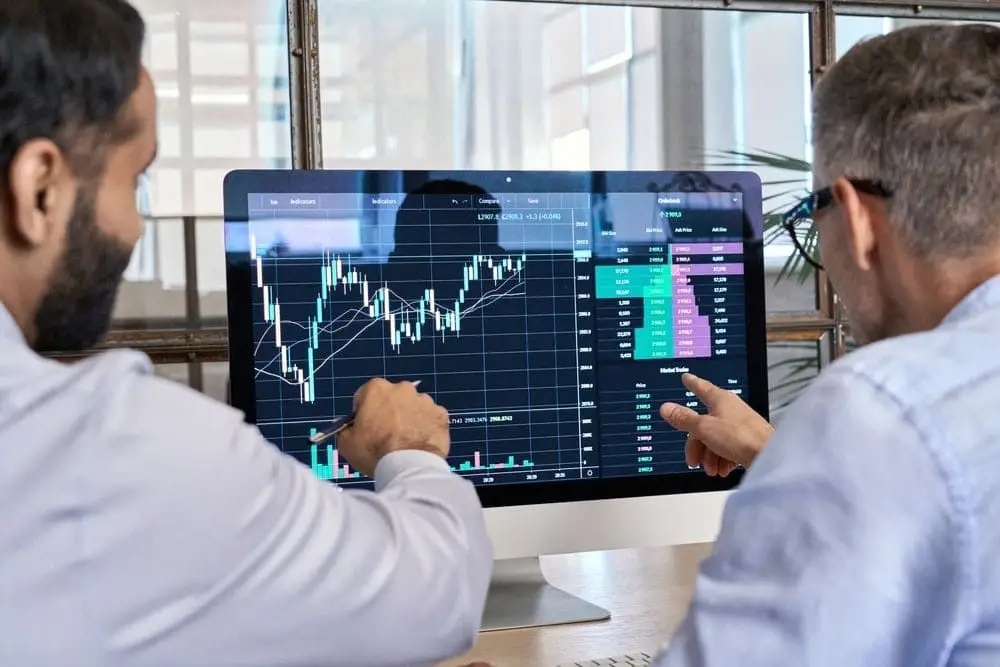An IPO is the moment when a company offers its securities on the open market for the first time. IPO – What is it in investing? For companies, it is a way to raise capital, and for investors, it is a way to enter the market early and potentially make big profits. In 2024, interest in the instrument is growing thanks to a number of high-profile offerings, such as the IPO of Gazprom Neft, the IPO of Sberbank and other big names on the financial market.
What is an IPO: What is its most important aspect and why is it a necessary investment?
An IPO is a company’s entry into the world of public capital. But why do companies decide to go public and what does that mean for investors?

- Raising capital for growth. The main purpose of an IPO is to raise capital for expansion, launching new projects and developing technologies. For example, a company can use the proceeds from an IPO to develop new products or expand into international markets.
- Strengthening the brand and trust. Public status increases the transparency of a company and creates trust among partners and customers.
- Liquidity for shareholders. An IPO allows early investors or employees to make a profit on their shares. For example, Ozon shareholders were given the opportunity to sell their shares on the stock exchange and make up to 40% profit on their initial investment.
How to participate in an IPO and what beginners need to know to invest successfully
 Participating in an IPO is not only a chance for potential profit, but also a complex process that requires preparation and insight. Step-by-step instructions:
Participating in an IPO is not only a chance for potential profit, but also a complex process that requires preparation and insight. Step-by-step instructions:
- Select a broker. Not all companies offer access to IPOs. To participate, you need a broker who offers appropriate services (for example, Freedom Finance or VTB Investments). Some also have minimum investment requirements: an average of 50,000 rubles.
- Evaluate the company. Before buying shares, it is important to study the financial performance of a company and evaluate its business model and prospects. For example, evaluate the price-earnings ratio. It should not be higher than the industry average, preferably between 15 and 20.
- Submit your application. Brokers accept applications until the placement date. Please note that the number of shares is partially limited.
- Receive distribution. Once the application is submitted, depending on market demand, not all desired securities may be available.
What are the specifics of Russia?
Regulation. In Russia, IPOs are subject to strict regulations of the Central Bank (for example, Federal Law No. 39-FZ “On the Securities Market”), which ensures the protection of investors’ interests, but can complicate the process.
Availability for private individuals. Some IPOs in the country are open only to qualified investors, which limits the participation of newcomers.
Pros and cons of an IPO when investing: What should an investor pay attention to?
The instrument offers a number of advantages that attract investors, but it also carries certain risks.
Pros:
- Potentially high returns. Many companies see their stock price rise significantly after their IPO. An example is the Yandex IPO, where the company’s stock price doubled in the first year.
- Ability to buy shares at the initial price. The price of securities is usually lower at the time of an IPO than after trading on the open market begins.
What are the investment risks associated with participating in an IPO?
It is important to realize that risks can significantly affect profitability and even lead to financial losses. Every aspect is important: from market volatility to possible changes in legislation:
- Market volatility. After an IPO, stock prices can fluctuate significantly, and it is not uncommon for prices to fall in the first months after the IPO. For example, after the IPO of VK (formerly Mail.ru Group), shares fell by 30% in the first three months.
- Lack of information. Before an IPO, stakeholders provide only the absolutely necessary information, which complicates the process of making an informed decision. Investors often do not have access to information about a company’s actual debt obligations and management data.
- Regulatory risks. Changes in legislation can affect the value of shares.
Examples of successful and unsuccessful IPOs in Russia
To better understand the features of this instrument, it is useful to look at real-life examples of successful and unsuccessful IPOs in Russia. These cases will help you assess which factors influence success or failure.
Successful:
- Sberbank IPO. One of the most successful placements in the history of the Russian market. Sberbank shares grew steadily after the IPO, bringing significant profits to investors. Since their IPO, they have grown by 120%, making them attractive for long-term investments.
- Gazprom Neft IPO. Thanks to high oil prices and increased production, the company’s shares have risen steadily since the IPO. In the first year alone, the share price increased by 50%, bringing significant profits to investors.
Failed:

- RusHydro. After the IPO, the company’s shares fell due to negative news about tariff regulation and governance issues. In the first year, they lost up to 25% of their value.
- Telecommunications systems. The company’s unwillingness to go public and poor financial reporting led to a
- Price reduction. Due to a lack of transparency and uncertainty about the company’s development plans, investors lost about 40% of their investment.
Conclusion
 Is it worth participating in an IPO in 2024? There is no clear answer. The decision to invest in an IPO depends on the investor’s individual risk appetite and his desire for potential returns. An IPO offers the opportunity to make money quickly, but also carries the risk of loss. After an investor has carefully weighed all the pros and cons and evaluated the financial possibilities and market knowledge, he can make a well-considered decision.
Is it worth participating in an IPO in 2024? There is no clear answer. The decision to invest in an IPO depends on the investor’s individual risk appetite and his desire for potential returns. An IPO offers the opportunity to make money quickly, but also carries the risk of loss. After an investor has carefully weighed all the pros and cons and evaluated the financial possibilities and market knowledge, he can make a well-considered decision.
 en
en  ru
ru  de
de  ar
ar  es
es  nl
nl  hi
hi  fr
fr  it
it  pt
pt  el
el 









